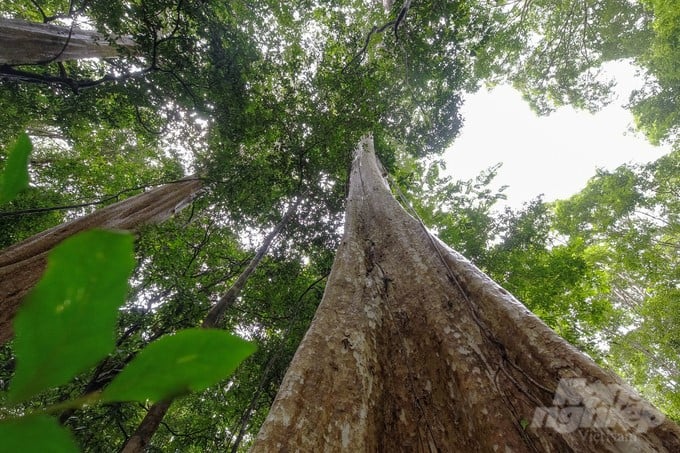November 25, 2025 | 04:31 GMT +7
November 25, 2025 | 04:31 GMT +7
Hotline: 0913.378.918
November 25, 2025 | 04:31 GMT +7
Hotline: 0913.378.918

The carbon market development project has fully built the necessary regulations for early implementation. Photo: Tung Dinh.
Recently, the Centre for Natural Resources and Environment Communication (Ministry of Natural Resources and Environment), in collaboration with the Vietnam Economic Times and organizational partners, organized the conference "Promoting the value of forest resources associated with the goal of Net Zero and sustainable development." At the conference, Ms. Dang Thi Thuy, Head of the Department of International Financial Law (Ministry of Finance), said that the carbon market development project, chaired by the Ministry of Finance in coordination with the Ministry of Natural Resources and Environment, has fully built the necessary regulations for implementation as soon as possible.
The carbon credit market is built based on Resolution 24-NQ/TW of the 11th Central Executive Committee, with the goal of promoting greenhouse gas emission reduction activities in accordance with national conditions, and based on the Government's Action Program to implement Resolution 24-NQ/TW on the National Strategy on Climate Change, the National Strategy on Green Growth, and Resolution 93/NQ-CP approving the Paris Agreement on climate change.
The project to develop the carbon market in Vietnam has identified two main types of goods, including greenhouse gas emission quotas and carbon credits. Facilities that must inventory greenhouse gases will be allocated quotas by the Ministry of Natural Resources and Environment, while carbon credits will be generated from domestic and international projects. In addition, the carbon credit market will have the participation of two main groups of entities: investors and intermediary organizations.
In terms of operations, the Ministry of Natural Resources and Environment will also be the unit responsible for managing and operating the domestic carbon market and supervising the carbon credit trading floor, according to the provisions of the Law on Environmental Protection 2020 and related decrees.
According to the project's roadmap, by the end of 2024, the project will complete the legal framework and technical infrastructure and improve the management capacity of state agencies and awareness of businesses. By 2025-2027, pilot the carbon credit trading floor, evaluate the pilot results, and continue to perfect the legal framework and technical infrastructure. From 2028, the carbon credit trading floor will officially operate. At the same time, the project will research the possibility of connecting with the regional carbon market and the world carbon market.
Translated by Thu Huyen

(VAN) ILDEX Vietnam 2026 will connect more than 250 exhibitors and 10,000 visitors from 40 countries.

(VAN) Hue City is accelerating efforts to combat IUU fishing, aiming to remove EC’s 'yellow card' and promote sustainable fisheries development.

(VAN) The recent torrential downpours and unprecedented flooding in the Southern Central Coast are a highly unusual meteorological and hydrological event.

(VAN) The Southern Central Coast and Central Highlands regions have suffered massive agricultural losses, with over 80,000 hectares of rice and crops, alongside millions of livestock, being swept away, causing severe damage to farmer livelihoods.

(VAN) Trieu Son commune deploys a 'virtual assistant' to help residents complete administrative procedures.

(VAN) Applying green technology in rural water supply and sanitation helps improve resource efficiency, protect the environment, and enhance community living standards.

(VAN) Developing biosecure livestock production is the key that helps Tuyen Quang form linked chains in livestock production and build its brand in the market.